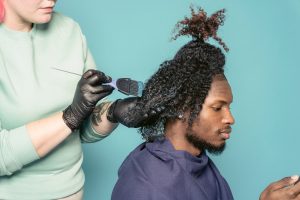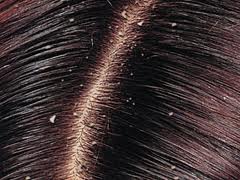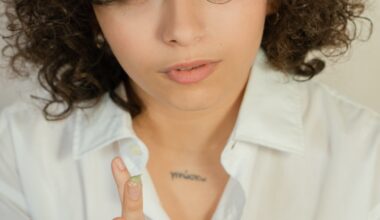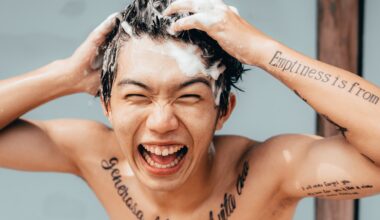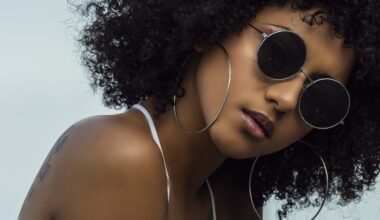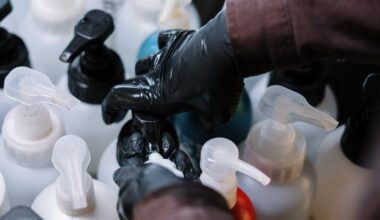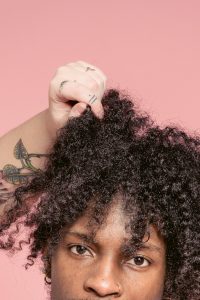
Itching is your brain’s reaction to discomfort or irritation. An itchy scalp can be uncomfortable and embarrassing, but don’t worry you’re not alone in this. Itchy scalps are a common problem for many people.
The good news is that there are ways to get relief! The best way to get rid of an itchy scalp is by identifying what’s causing the itch. So in this article, we’ll take a look at what causes itchy scalps and provide some tips to help you get relief and keep your scalp itch free!
Causes
An itchy scalp can be caused by a variety of factors including:
1. Heat
When the weather is hot and humid, the intensity of itching on the scalp can often increase due to sweat or heat. Sweat can clog your pores and inflame your hair follicles. Resulting in an itchy sensation on your scalp.
Treatment
- The best way to prevent clogged pores is by washing your hair regularly with a mild shampoo. This will reduce the frequency of itching due to sweat.
- Try to free your hair from the hats and scarves to ensure proper circulation of blood and cool breeze.
2. Dryness
The main culprit for itching and irritation is the lack of moisture in the scalp. Lack of moisture on your scalp can leave your hair dry and more susceptible to environmental damage. This can result in uncomfortable itching or irritation. Fortunately, there are several ways to help keep your scalp hydrated and relieve any itch from lack of moisture.
Treatment
- Use products that are specifically designed for scalp care. This will provide extra hydration to your scalp and soothe any irritation
- Incorporate hair masks or a weekly deep conditioner into your haircare routine to keep your scalp nourished and hydrated
- Additionally, using a gentle shampoo that doesn’t strip away natural oils from your scalp can also help maintain moisture levels in the hair
3. Hair Dyes and Hair Sprays
Styling products such as gels, mousses, waxes, and sprays contain alcohols such as ethanol or propanol that could strip away the skin’s natural oils, leaving it dry and itchy. Even certain shampoos contain sulfates that can also be drying and irritating to the scalp. Changing your hair colour can also irritate your scalp if the dye contains peroxide which can irritate the skin.
Treatment
- Opt for Plant-based hair dyes like vegetable extracts and Henna dyes that will colour your hair without irritating your scalp.
- Always do a patch test when trying out a new product and look out for signs of irritation.
- Washing your hair with hot water is a bad idea as this may enlarge and irritate your pores, causing further damage to your hair.
4. Allergies
Allergies are a common cause of itchy hair and scalp. Allergens such as pollen, mould, pet dander, and dust mites can cause skin irritations that result in uncomfortable itching. Hair care products like shampoos, conditioners, styling gels, mousses, or hairsprays can contain allergens that irritate the scalp if they are not suitable for your hair type or sensitivity level. Fragrances, preservatives, sulfates, and certain botanical extracts are common causes of allergies in people.
Treatment
- Allergy-triggering ingredients vary from person to person, so it’s important to know what ingredients you’re putting into your hair and look out for signs of irritation.
- If you are experiencing severe itch on your scalp and have recently tried a new product, it is recommended to discontinue using it.
- Dirty pillowcases, hats, and hair bonnets can harbour bacteria and trigger allergies, so ensure proper hygiene.
- By understanding what triggers a flare-up, as well as following a hair and scalp care routine you sure are on the path to ensuring an itch-free hair growth journey.
5. Scalp Psoriasis
Scalp psoriasis is a condition that causes thick, scaly patches of skin to form on the scalp. Scalp psoriasis can be a result of irritation of psoriasis or secondary infection caused by frequent scratching.
This can cause severe itching or burning sensations on the affected area of the scalp. Scalp psoriasis can be managed with proper treatment and self-care. An effective hair and scalp care routine must be adopted in order to control this condition.
Treatment
- Medicated shampoo and conditioners that are specifically formulated to reduce inflammation can help manage scalp psoriasis.
- Hair styling techniques like braiding, twisting or plaiting can also be useful for keeping hair in place and away from the affected areas.
- Additionally, gentle massaging your head with a massaging brush may stimulate blood flow to the scalp and promote healing.
6. Dandruff
Dandruff is a skin condition characterized by dry, flaky white to yellowish scales on the scalp, and can often lead to itchiness. This condition is typically caused by an over-production of yeast cells on the scalp that feed off the natural oils produced by the skin. Dandruff is not a serious medical condition, but it can be uncomfortable and embarrassing.
Treatment
- Try using shampoos formulated with ingredients like tar or Salicylic acid. This will help reduce overproduction of yeast cells on the scalp and minimize irritation.
- Use lukewarm water instead of hot water to wash your hair since hot water tends to strip away too much of the skin’s natural oils.
- Take time to massage your scalp to promote circulation while you’re shampooing, this will help to loosen dirt and stimulate the scalp
7. Head Lice
Head lice are tiny parasites that feed on human blood, which is why they can cause an itchy scalp. They lay eggs close to the root of the hair shaft, and when these eggs hatch, a new generation of lice is born that can then spread to other parts of the body, or even infest other people’s hair as well. Head lice are typically found in the hair of children.
Scratching caused by head lice can lead to irritation, inflammation, redness and sometimes even bleeding on the skin. Therefore, it is important to practice good scalpcare habits and keep the hair clean in order to reduce the risk of developing an itchy scalp due to lice infestation.
Treatment
- Avoid sharing hair combs, brushes, hats, wigs and bonnets with an infected person.
- Applying a medicated shampoo and covering it with a shower cap for a couple of hours before rinsing it off will have the lice smothered out in no time.
- Combing your hair out with a nit comb is another effective way of getting lice out of your hair.
Conclusion
Itchy scalps can be caused by environmental factors such as dry skin, dandruff, allergies or underlying medical conditions. Hair care products like shampoos and conditioners containing harsh chemicals may also irritate sensitive scalp resulting in itching.
To keep your scalp healthy, practice good hair care habits such as washing your hair regularly with a mild shampoo designed specifically for your hair type. Avoid over-washing and using harsh chemicals on your hair. Additionally, use lukewarm water when showering or rinsing out shampoos, since hot water can be drying and irritating to sensitive scalps. With these tips, you can have healthy hair and scalp that is itch free.
